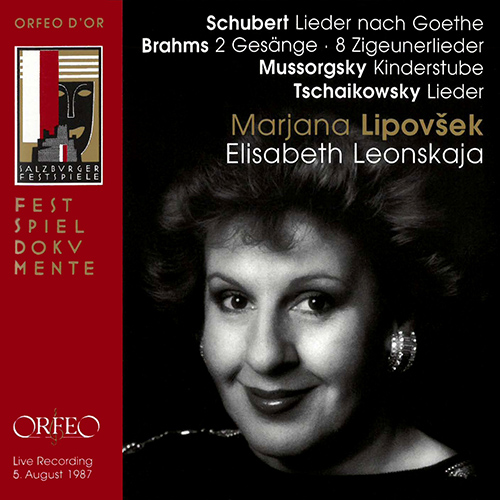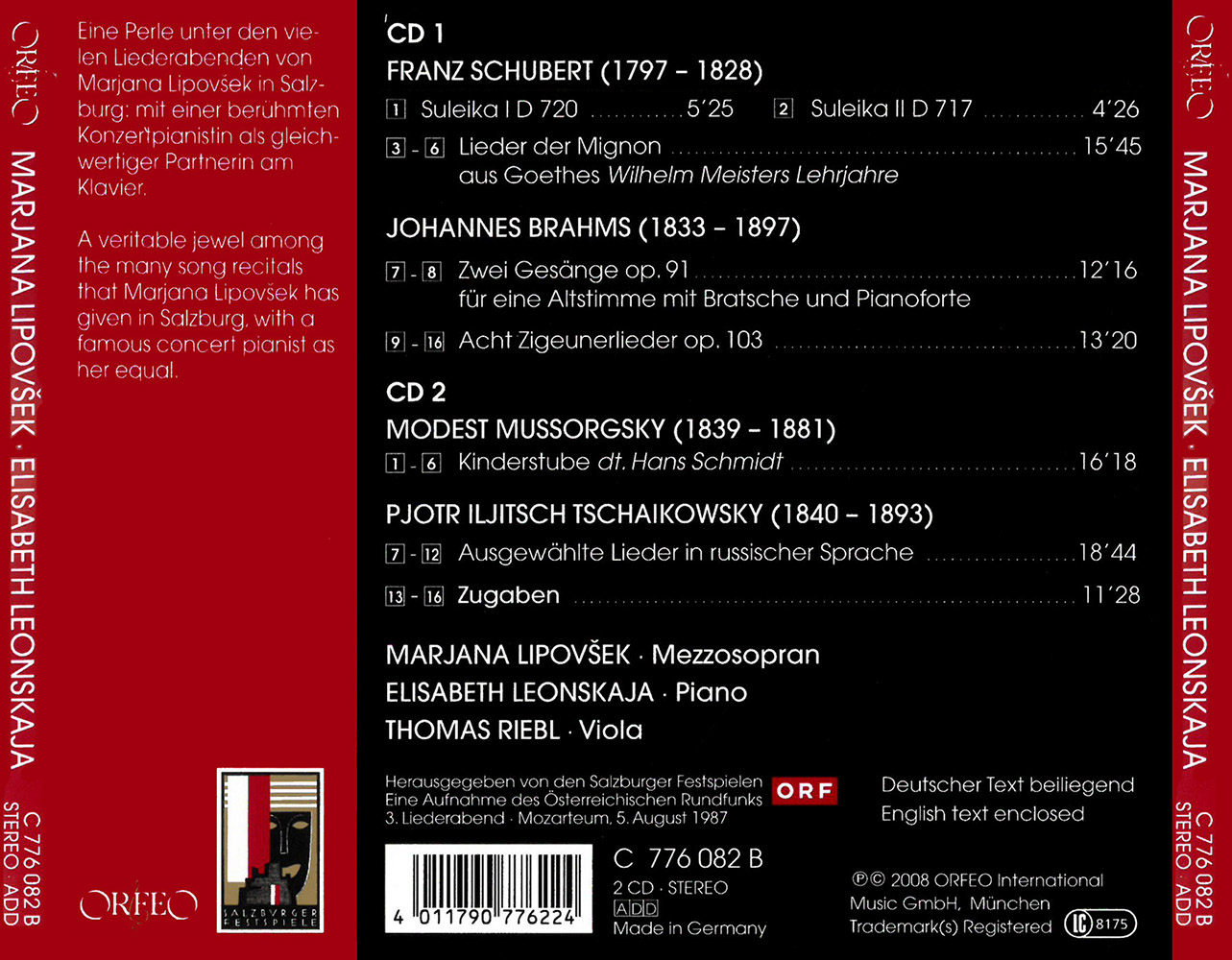Schubert: Lieder nach Goethe / Brahms: Zwei Gesange / Mussorgsky: Kinderstube
One of the most versatile representatives of the classical art of singing during the last twenty years has undoubtedly been the Slovenian mezzo-soprano Marjana Lipovšek, a singer who has shone both on the concert platform and in international opera houses in a repertory extending from early music to contemporary works. At her 1987 Salzburg Festival recital, conversely, she concentrated on 19th-century works, straying beyond those self-imposed confines only for her encores. But what a range of expressive vocal colours she brought to bear on these songs! Her pianist was Elisabeth Leonskaja, an accompanist entirely her equal in terms of her musicality and creative input. They began with a group of Schubert’s settings of Goethe, the Mignon songs proving particularly successful by virtue of their transcendent simplicity. Then came a group of Brahms lieder. For the two op. 91 songs, soprano and pianist were joined by the warm-toned viola of Thomas Riebl, after which Lipovšek and Leonskaja delighted their audience with a spirited reading of the same composer’s Zigeunerlieder. In the second half of the programme, the singer was able to draw on her stage experience, effortlessly and playfully bringing to these songs the intensity of an operatic characterization. Adopting a naïvely childlike tone, she performed Mussorgsky’s The Nursery in German, transporting her listeners directly into the nursery of the title, while for a group of Tchaikovsky songs she chose the original Russian, their largely melancholic basic mood conjured up by Elisabeth Leonskaja with her exceptional touch and range of colour. Their encores comprised Richard Strauss’s Die Nacht, another song by Brahms, an adaptation of a Slovenian folksong by the singer’s father, Marijan Lipovšek, and, finally, Schubert’s setting of Hölty’s Seligkeit (Bliss) – a suitable description of the atmosphere that had developed between artists and audience over the course of the evening. It is an atmosphere that comes across in this live recording, the vitality of which is further underlined by Marjana Lipovšek’s lively introductions to her encores.

















